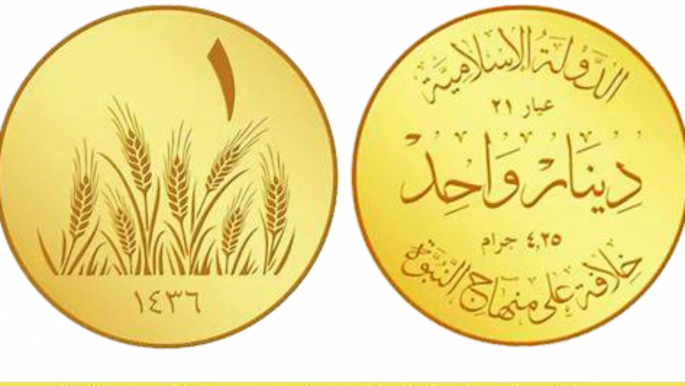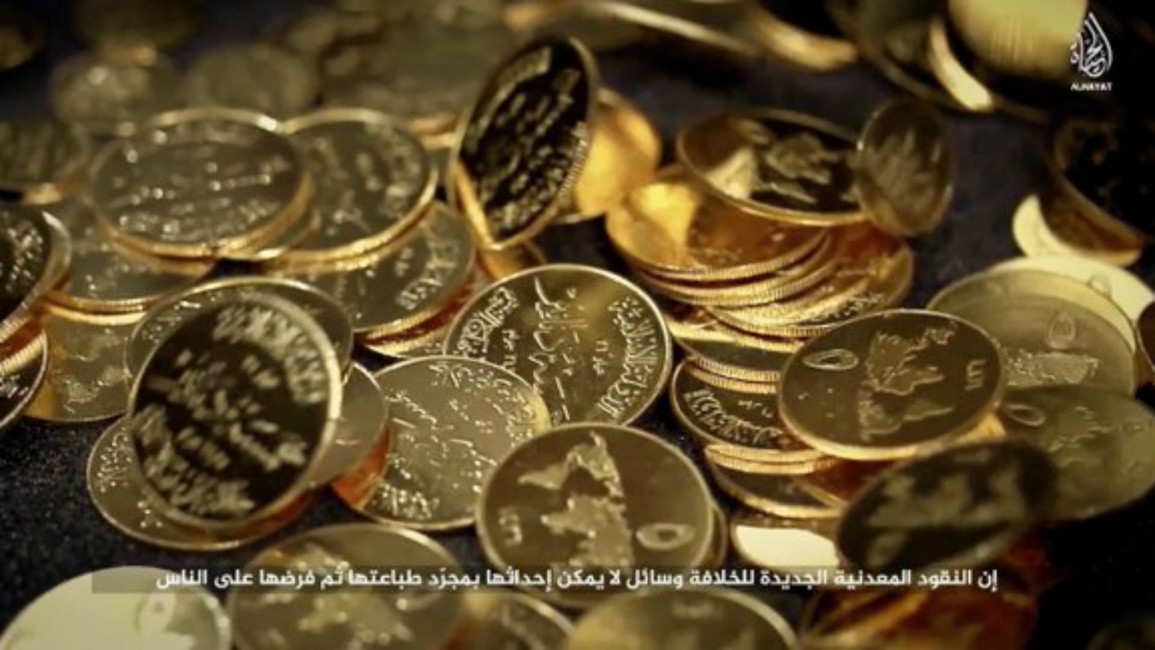IS forces Syrian traders to use its 'Islamic Dinar'
The Islamic State group [IS] has begun to force businesses to trade in its own currency dubbed the "Islamic Golden Dinar" in Syria's eastern province of Deir ez-Zor.
The extremist group has warned that traders in the city of al-Mayadin who ignore their demands will be dealt with "harshly".
"IS is forcing traders in the town to buy dinars and dirhams in its exchange bureaus and to begin using the currency instead of the regime's pound," local activist Amer Huwaidi told The New Arab.
"The group has threatened harsh punishment to anyone caught failing to conduct business with the 'Islamic Dinars',"
"The traders will have to comply with IS' demands and within the next few days they will all start using the new money," Huwaidi added.
The Golden Dinar is reportedly made of 4.25 grams of 21 carat gold, and worth approximately $163 at today's exchange rate.
In June last year, IS announced it was beginning to mint the currency to "emancipate itself from the satanic global economic system".
 |
|
| Economists have called the IS Dinar a "failure" [Twitter] |
At the time, Iraqi economist Ahmad al-Dulaimi told The New Arab that the endeavour would be a failure.
"This new currency is merely a show of strength from IS that it can do as it pleases and possess the elements of a state," he said.
The Economist agreed.
"A coin backed by a terrorist organisation has obvious credibility problems: aside from the fact that its coins cannot be traded legally, few would presumably use this currency to trade oil if it was only available in coin form, or other forms that relied on trusting Islamic State," it said.
The IS dinar is based on dinar coins used during the Caliphate of Uthman in 634CE, which included two gold, three silver and two copper coin denominations.
This week, new analysis showed that IS has lost 12 percent of territory it holds in Iraq and Syria and continues to lose ground after setbacks last year.
The analysis published on Sunday says the extremist group, which proclaimed its self-styled "caliphate" in the two countries in 2014, is continuing to lose ground after a string of setbacks last year.
"In 2015, the Islamic State's caliphate shrunk by 12,800 square kilometres to 78,000 square kilometres, a net loss of 14 percent," research group IHS said.


![President Pezeshkian has denounced Israel's attacks on Lebanon [Getty]](/sites/default/files/styles/image_684x385/public/2173482924.jpeg?h=a5f2f23a&itok=q3evVtko)



 Follow the Middle East's top stories in English at The New Arab on Google News
Follow the Middle East's top stories in English at The New Arab on Google News


